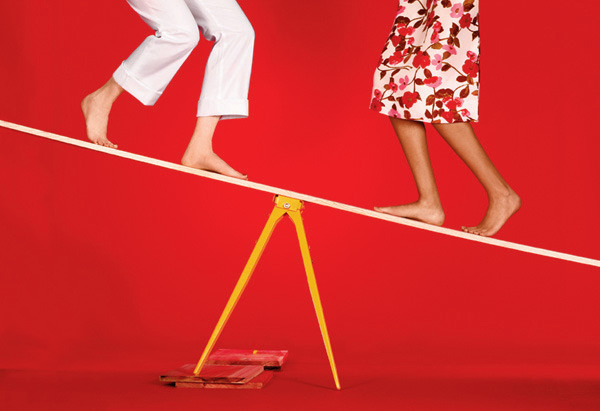The Friendship Test
Friends don't let friends do all the work.

Photo: Kate Lacey
My bad mood disappeared as I grilled Riley about every detail, told her it was perfectly normal that the incident upset her more than global warming, and affirmed that her teeth looked great (they did). After a while, Riley drew a deep breath, exhaled, and relaxed.
"Now," she said, "what's going on with you?"
Immediately, my previous unhappiness resurfaced. Riley did some heavy therapy on my private psychological issues, which was no doubt recorded and posted on YouTube by the bored baristas. No matter—I felt worlds better by the time we parted. So, she said through her totally normal-looking teeth, did Riley.
To me, this was friendship at its best. Riley and I spontaneously and easily switched roles, taking care and being taken care of. But not all relationships (certainly not all of mine) flow this smoothly. Many friends have unspoken but ironclad rules about which person will do what share of the emotional and logistical work.
Right now, scan your mental files for friendships where the roles never change: She's the talker, you're the listener; she's the star, you're the screwup; she never calls you, you always call her. Imagine what this friend's response would be if you stopped playing your part or stepped into hers. Would she be shocked or angry? Would she ice you, scold you, drop off your social calendar? If so, I'm afraid that particular connection isn't exactly a friendship. Rigid roles enforced by social pressure add up to something else—something I call a naiad dyad.



